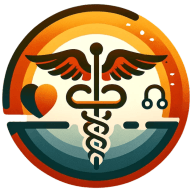What Advice Would You Give to New Healthcare Professionals?
As new healthcare professionals step into the field, we've gathered invaluable advice from seasoned experts, including embryologists and physicians. From prioritizing empathy in patient care to forging strong patient-physician partnerships, discover the top ten pieces of wisdom these healthcare veterans have to offer.
- Prioritize Empathy in Patient Care
- Be Patient and Communicate Openly
- Adopt a Holistic Patient Care Approach
- Honor Patient Trust and Vulnerability
- Emphasize Empathy and Self-Care
- Create a Supportive Environment
- Establish Boundaries to Prevent Burnout
- Invest in Patient Education and Counseling
- Ensure Personalized Hands-On Patient Care
- Forge Strong Patient-Physician Partnerships
Prioritize Empathy in Patient Care
One vital piece of advice I'd offer to new healthcare professionals is to prioritize empathy when caring for patients. While technical skills are crucial, empathy forms the foundation of effective healthcare. Patients aren't merely cases—they're individuals with unique stories, feelings, and needs. By demonstrating empathy, actively listening, and treating each patient with compassion and dignity, you can establish trust and forge meaningful therapeutic relationships. These connections not only enhance patient satisfaction but also lead to improved health outcomes.
Remember, a kind gesture or a sympathetic ear can profoundly impact someone facing illness or injury. So, never underestimate the significance of empathy in your practice. It's not just about treating ailments; it's about valuing the whole person. By embracing empathy, you'll not only excel in your profession but also make a significant difference in the lives of those under your care.

Be Patient and Communicate Openly
One piece of advice I'd give to new healthcare professionals entering the field is to be patient and meticulous in both your practice and patient interactions. From my experience as a plastic surgeon practicing since 1985, rushing through procedures or recovery processes can lead to complications and unsatisfactory outcomes. In our world, patience is a rare but essential virtue.
A mentor of mine, Dr. Guyuron, the Chief of Plastic Surgery at Case Western Reserve University Hospital, emphasized the importance of being meticulous and striving for perfection, which profoundly influenced my practice.
For example, after major plastic surgery, I've seen complications arise when patients rush back to their normal routines too soon. Encouraging them to take the necessary time to heal and follow post-operative instructions diligently has made a significant difference in their recovery.
Another critical aspect is maintaining open communication and being accessible to your patients. Throughout my career, I have made it a point to provide my patients with my cell phone number, ensuring they can reach me anytime they have concerns or complications. This accessibility not only builds trust but also helps address issues before they escalate.
Lastly, emphasize the importance of lifestyle choices in patient care. Habits such as smoking or excessive alcohol consumption can significantly hinder the healing process. Encouraging patients to adopt healthier lifestyles—regular exercise, balanced diets, and quitting smoking—can optimize surgical results and promote long-term well-being.
Using these principles, I've managed to lower the complication rates in my practice and ensure better, more sustainable outcomes for my patients.
Adopt a Holistic Patient Care Approach
Based on my 33 years in the medical field as a prominent plastic surgeon and the founder of Slimz Weight Loss Clinic, one piece of advice I'd give to new healthcare professionals is to embrace a holistic approach to patient care. Early in my career, I realized that addressing just the physical aspect of a condition is often not enough.
For instance, while performing breast reconstruction surgeries, I learned from my mentor, Dr. Carl Hartrampf, the importance of psychological support for patients. This comprehensive care leads to more effective and satisfying outcomes. Concrete data and case studies support this approach.
Another crucial aspect is continuous learning and certification. I earned my certification in Peptide Therapy from the Clinical Peptide Society in 2023, and it has significantly enhanced the treatment options I offer. Staying updated with certifications and new methodologies not only broadens your expertise but also translates to better patient care—whether you're addressing aging, weight loss, or complex surgical needs. Always seek to integrate new knowledge with personalized patient care strategies for the best results.
Honor Patient Trust and Vulnerability
Working in healthcare and being able to take care of patients is a huge responsibility because people's lives and health are truly in your hands. The value and weight of this profession should never be underestimated nor forgotten throughout your career. It's important to always remember that patients come to us with a sense of trust, and we must honor that.
When someone sees a healthcare professional, they are in a very vulnerable place, mixed with fear and anxiety regarding their health, and that should be treated with sensitivity and the utmost care. Being a healthcare professional is very rewarding but also very strenuous; therefore, it's important to do what you love and work in a field that you are passionate about.

Emphasize Empathy and Self-Care
To new healthcare professionals entering the field, my advice is to always prioritize empathy and communication. As a plastic surgeon at Fulcrum, I've found that understanding and genuinely listening to patients not only builds trust but also significantly improves outcomes.
Moreover, in order to best care for others, you also have to take care of yourself—mental and physical well-being are essential to providing the best care to your patients.

Create a Supportive Environment
One piece of advice I'd give to new healthcare professionals is to prioritize creating an uplifting environment for both patients and staff. During the COVID-19 pandemic, we emphasized gestures of kindness and support, not just within our clinics but extending to the broader community. Simple acts like running errands for healthcare workers, or showing patience and gratitude to grocery store staff, helped alleviate stress and foster a positive atmosphere. This sort of environment not only benefits patient recovery but also boosts staff morale and productivity.
Another critical piece of advice is to ensure that clinical education for students is structured and comprehensive. From my experience at Wright Physical Therapy, the inconsistency in clinical education undermines new graduates' readiness. We've seen students often feel underprepared due to the lack of hands-on experience during internships. We focus on a robust mentorship system where students are closely supervised by credentialed clinicians. This ensures that students are not merely observers but active participants in patient care, thus better preparing them for their careers.
Embracing a holistic and proactive approach to health is also imperative. As we guide our patients toward healthier lifestyles, we frame resolutions around positive additions rather than just restrictions. Encouraging patients to add new skills or healthy habits instead of just eliminating bad ones leads to sustainable health improvements. This perspective not only aids in physical recovery but enhances overall well-being. By integrating these principles into your practice, you can help patients achieve lasting health and joy.
Establish Boundaries to Prevent Burnout
One piece of advice I'd give to new healthcare professionals entering the field is to establish clear boundaries to avoid burnout. From my experience running Erez Functional Medicine and learning about clinician burnout through resources like the IFM Toolkit, I've seen how boundary management can protect your mental and physical health. Clinicians often face “treadmill practices” where they're seeing patient after patient without breaks, leading to exhaustion. It's crucial to schedule moments for rest, family, and personal development to maintain a sustainable practice and ensure high-quality patient care.
Another essential strategy is to utilize available tools to streamline patient care and improve efficiency. For instance, IFM’s Toolkit has been invaluable in my functional medicine practice. The resources, such as lifestyle and nutritional guides, allow patients to take home information they can review at their leisure. This not only bolsters patient education but also frees up time during consultations for more personalized care. Ensuring patients understand their treatment plans and have accessible resources can help them achieve better health outcomes.
Lastly, maintaining an open and collaborative communication style with your patients is vital. I've found that acknowledging their efforts and being transparent, especially when dealing with emerging treatments with limited research, fosters a trusting relationship. When patients bring information they've researched, I make sure to validate their efforts and investigate the options before offering a considered opinion. This collaborative approach empowers patients while enhancing their engagement and adherence to treatment plans, leading to improved health outcomes.
Invest in Patient Education and Counseling
As an experienced pharmacy manager, the key piece of advice I'd give to new healthcare professionals is to prioritize patient education and counseling. I've seen how critical it is to invest time in explaining medication regimens, potential side effects, and the importance of adherence. For instance, many patients are unaware of the implications of skipping doses or not following their prescribed regimen. By taking the time to counsel them effectively, we can significantly improve their outcomes and overall satisfaction.
Another vital aspect is maintaining meticulous inventory management. In a retail pharmacy, an accurate and well-maintained inventory is crucial for ensuring that patients have timely access to their medications.
Finally, embrace innovation in your practice. Staying abreast of industry developments and integrating new services can greatly enhance patient care and keep your practice competitive. Always be open to learning and adapting to new healthcare trends and technologies.

Ensure Personalized Hands-On Patient Care
One piece of advice I'd give to new healthcare professionals is to always prioritize hands-on patient care. Over the last 25 years as an orthopedic surgeon, I've seen how essential it is to personally examine and interact with each patient during every visit. Physical exams are vital in accurately diagnosing and treating orthopedic conditions. Face-to-face discussions help build trust and ensure patients feel heard. Many patients have told me they value this personalized interaction.
Maintaining strong communication with patients is also crucial. From my experience studying in Valencia and teaching in Barcelona, I've found that relating to patients in their native language makes a significant difference. Fluent in Spanish due to my time in Spain and Costa Rica, I use this skill daily in Boston to make Spanish-speaking patients feel more comfortable. This leads to more productive visits and better patient outcomes because patients can express their concerns more clearly.
Finally, never underestimate the power of staying updated with innovative treatments and technologies. I completed my orthopedic training at the Rothman Institute and further specialized in shoulder surgery and sports medicine under Dr. Felix “Buddy” Savoie. This rigorous training allowed me to master techniques like ultrasound-guided injections and PRP therapies, which are game-changers in patient care. Continuously incorporating industry advancements into your practice ensures you're providing the best care possible to each and every patient.
Forge Strong Patient-Physician Partnerships
One piece of advice I'd give to new healthcare professionals entering the field is to prioritize the patient-physician partnership. In my practice, I've learned that this relationship is crucial for effective care. Active listening and clear communication can significantly enhance patient outcomes. Every patient interaction should be seen as a collaborative effort, where the patient feels heard and valued. This approach builds trust and ensures that treatment plans are well-understood and followed.
Staying updated with the latest medical advancements is another key aspect. As the first certified robotic surgeon at South Lake Hospital, I've seen how innovative technologies can improve surgical outcomes. Keeping up-to-date on advancements in minimally invasive techniques and other medical innovations allows you to offer the best possible care to your patients. Continuous education and training are essential for maintaining high standards and staying competitive in the field.
Lastly, emphasize preventive care. Preventive medicine, as recognized by the American Board of Medical Specialties, focuses on preventing illnesses rather than just treating them. This can involve anything from educating patients about healthy lifestyle choices to organizing community workshops on nutrition and exercise. Preventive care reduces overall healthcare costs and empowers patients to take charge of their health, leading to better long-term outcomes.







